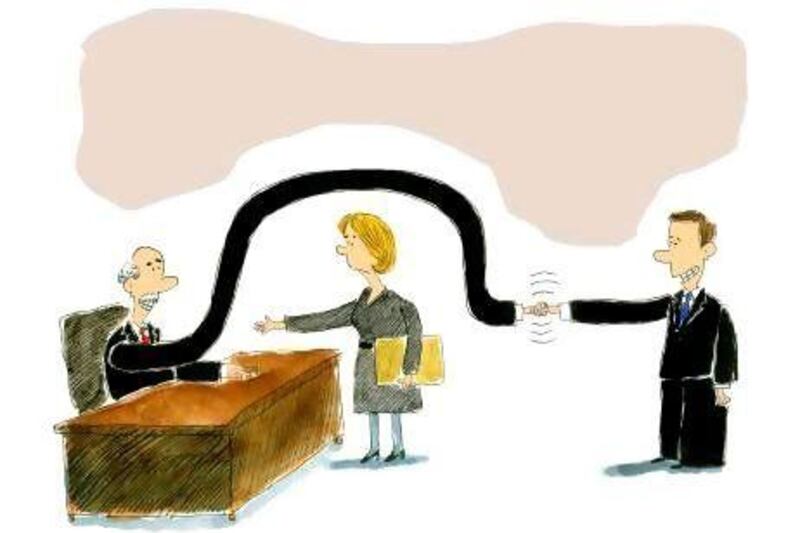Women. Work. Equal pay. Economic empowerment. Financial independence.
Excuse me while I pinch myself and stop daydreaming.
As a working woman in the 21st century, I'd like to think that women in the workforce wasn't an issue any more. That those glass ceilings had been smashed through long ago and we wouldn't still be debating what are essentially issues that belong in the 19th and 20th centuries - such as men receiving more money than women for the same work, women being overlooked for promotions simply because they also happen to have families, and, yes, even women (and men, of course) having problems reporting to female managers.
In an ideal world, these wouldn't be issues. Everybody would be equal and salaries would be paid based on experience rather than gender; that women are promoted because they are good at what they do. And that female managers are accepted by their teams because of their amazing leadership qualities and skills.
"Higher female earnings and bargaining power translate into greater investment in children's education, health and nutrition, which leads to economic growth in the long term," the UK department for international development said in a research paper on gender in 2010.
It's an extremely valid point in an age when many men still get paid more than their equally qualified female counterparts.
Of course, I'm generalising. I know there are many companies and women who buck the stereotype, while there are many people who understand the importance of equality. Unfortunately, it's not everybody. Which is why these issues continue to exist regardless of where we are in the world.
But the results of a new survey released this week by Bayt.com, a jobs site based in Dubai, and YouGov, a research and consulting firm, has raised some interesting - and, in some cases, encouraging - points when it comes to working women across the region.
According to the study, Women in the Mena (Middle East and North Africa) Workplace 2012, 57 per cent of the 2,185 female respondents say they are motivated professionally by monetary prospects, with financial independence high on the agenda when choosing their jobs.
And so it should be; just like it is for their male counterparts.
The study also found that six out of 10 Arab women living in the GCC chose to work to broaden their perspectives in life, while 63 per cent of Asian women were seeking to financially support their families.
And when looking for work, their biggest considerations were salary (59 per cent), opportunities for long-term career growth (31 per cent) and that all-important health insurance that covered the whole family (28 per cent). For women aged 46 and above, retirement was also a priority, the survey said.
"Women across the Mena region are breaking stereotypes and embracing their careers more wholeheartedly than ever before," says Lama Ataya, the chief marketing officer at Bayt.com.
"There is a desire for equality and it seems that, for the most part, this desire is being met by employers."
The survey also found there were more female bosses in Lebanon (28 per cent), in Tunisia (24 per cent) and in the UAE (20 per cent). However, only 19 per cent of the respondents said they reported to a woman.
Most of the respondents (68 per cent) said it did not bother them whether their supervisor was a man or a woman, 28 per cent said they'd rather have a male boss and 4 per cent did not want to report to a woman (a small number, but still disappointing).
But it is the issue of the glass ceiling that continues to raise its ugly head, despite the inroads women have made in the workplace.
"Almost half of the surveyed women [44 per cent] state that fewer opportunities for job promotions are the biggest challenge they face in their work," the survey said.
"Stressful and demanding work environments follow, according to 38 per cent, while a third [33 per cent] state that lack of flexible working timings, limited opportunities to perform and insufficient job training and coaching are equally demanding."
So there's still a lot to work on, more so when you consider women in Qatar, Saudi Arabia and the UAE feel men are given preferential treatment in the workplace, or at least that's what the study says.
As Nellie McClung, a Canadian feminist and politician, said in 1915: "The time will come, we hope, when women will be economically free, and mentally and spiritually independent enough to refuse to have their food paid for by men; when women will receive equal pay for equal work, and have all avenues of activity open to them ..."
It's incredible that her words are still relevant nearly 100 years later.
Need I say more?






